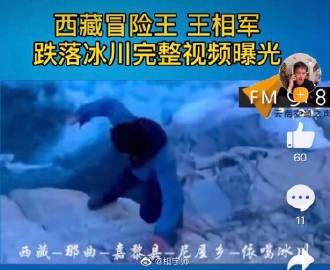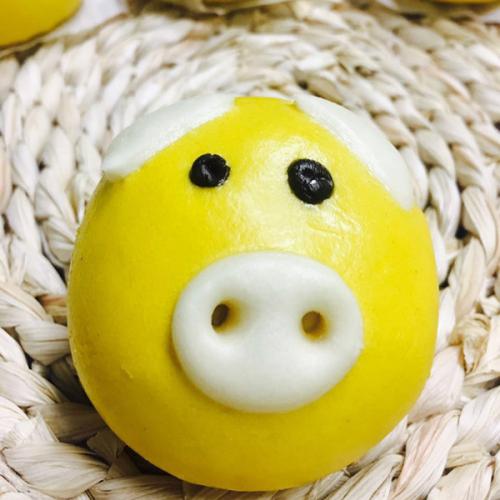 卡迪什
卡迪什2020年考博英语93分经验分享
作者笨鸟高翔清者自清,浊者自浊19年10月份到20年6月,将近9个月的时间,最后考试虽然是以自主命题的形式进行,但对于英语统考,自己也有一番自己的体会,这个过程中所经历的一切也让自己成长太多。从考研时的地方生全院第一到考博英语93分、骨科学博第一,至此,在升学考试的路途中也算是无悔了,接下来又要面对不同的人生抉择。备考时还时常回想起考研时的经历,一些事情仿佛仅是昨日,转瞬间又是另一场升学考试,年龄却是愈来愈大,考研时还刚刚是二十出头,还洋溢着青春时的冲劲与拼搏的动力,转眼间到了25、6的年龄,很多的想法也变得完全不同,下一步的选择要考虑到父母、人脉、经济条件等等,每时每刻脑海中都充斥着无数的思绪,到底自己将归于何处。对于考博来说,应该认识到的有两点:老板愿不愿意要你,取决于给老师干多少活、发多少文章、能提供多大的价值;老板能不能要你,则取决于你的考试分数。因为考博各个院校关于其专业课都有不同的偏向,对于301骨科来说,我们主要偏向于《实用骨科学》和《人体解剖学》,而每年卡分最为严重的则是英语。因此,自己主要分享一下对于全国医学考博英语统考的备考过程和想法。我承认那份经验帖说的是作者的真话,但是否是实话,就值得细品了,背后他到底付出了多大的努力,他的基础到底有多好,这些都无从说起。1个月内想完成考博英语从一般水平到82分的转变,基本是不可能。自己也了解到,二医大的学生从研一开始就开始了考博英语的准备,因为别无选择。刚开始准备的时候,自己也被这篇文章给忽悠了,一开端就盲目的自信,想在1、2个月内就取得很大的进步,很多事情变得急功近利了起来,盲目的在赶进度,没有真正的自我规划,内心也开始慌乱起来,很多时候就看不清自己的真实水平,从而无法分辨自己复习情况的优劣。回想起考研时的历程,才懂得考试成功的关键就是稳下心来,踏踏实实走好每一步。比起简简单单的介绍一下自己考博的方法和结果,更想说一些个人在准备考博过程中的接受、拒绝、修正和组织自己正确思路的切身感受,为大家提供一幅更加现实的思想动态,向大家展示获取这个结果的真实过程。有点像约翰.加德纳的比喻,他批评某些教师和教练,只给学生看知识园地里采摘下来的缤纷花朵,而不给学生看那束呈现在眼前芬芳美丽的花朵的种植、除草、施肥和修剪的整个过程,那么学生永远不知道怎么会开出这样的花朵。考博英语整体题型特点:对于考博英语来说,题型主要分为听力(30分)、词汇(10分)、完型(10分)、英语阅读(30分)、写作(20分)。还是原来考研时的心态,该做的事一定要做到极致,没有任何一个方面可以忽视,不要轻信别人说的词汇压根不用专门准备,好好准备的词汇可以保证你的分数稳定在8分-9分,如果不是特别重视的话,有一定的几率你的词汇只能保持在6-7分,考博的英语成绩想要从70提高到75分,看似只是5分的差距,但这5分是需要我们付出相当多努力才能换来的,而在这其中要求的就是每一项都要有所进步,但这个过程就是攀峰的最后一段,要花费特别大的功夫才能有一点收获。而在所有的题型中,最为重要的就是听力!对于听力来说,分数的波动实在太大,因为听力只有一次机会,所以发挥好的时候大家可以拿到25分,差一点可能就是18、9分,如果后边的内容再发挥的稍微差一点,英语成绩就只能保持在65左右,基本上和301的博士也就无缘了,所以必须要万分重视考博英语听力的练习。对于考博英语来说,听力怎么早准备都不为过,单词和听力是英语考试准备的重中之重,必须前期就打好基础,否则只能是单纯的在做重复工作。
 歌利亚
歌利亚上海2021年春考英语听力音频来了!看看你能听懂多少?
2021年上海春考英语考试已于今天上午结束。快来听听听力部分音频,测试一下自己的英语水平是不是“宝刀不老”?(点击音频,建议在WiFi环境下收听)编辑:马彦隽、顾依依、林欣【来源:上海发布】声明:转载此文是出于传递更多信息之目的。若有来源标注错误或侵犯了您的合法权益,请作者持权属证明与本网联系,我们将及时更正、删除,谢谢。 邮箱地址:newmedia@xxcb.cn
 超高频
超高频今天的英语四听力音频新鲜出炉!测测你还能听懂多少?
今天的大学英语四六级考试刚刚落下帷幕!还记得那些辛苦背单词的日子吗?还记得你当年的成绩是多少吗?快来听听今天四级考试听力部分音频,看自己的英文水平是退步了,还是提高了?四级听力音频【来源:上海发布】声明:转载此文是出于传递更多信息之目的。若有来源标注错误或侵犯了您的合法权益,请作者持权属证明与本网联系,我们将及时更正、删除,谢谢。 邮箱地址:newmedia@xxcb.cn
 好浪漫
好浪漫上海高考英语听力考试音频来啦!快来听听看你能全听懂吗
今天是2020年高考的第二天。上海高考外语科目考试刚刚结束。英语听力考试的音频也已对外公布。快来听听看,你全部听懂吗?来年参加高考的高二同学,也可以作为资料收藏。2020年上海高考英语听力音频来自:新闻晨报00:0016:00【来源:周到客户端】版权归原作者所有,向原创致敬
 芈后传
芈后传2019高考英语听力真题及解析(全国卷Ⅱ/Ⅲ)
2019年高考刚刚结束,下面为大家带来今年全国卷II听力部分(适用省份:甘肃、青海、内蒙古、黑龙江、吉林、辽宁、宁夏、新疆、陕西、重庆、海南)。备注:全国卷III(云南、广西、贵州、四川、西藏)听力部分与卷II一致,该解析同样适用。19:38题型分布:疑问词分布:全卷总词数:833词全卷平均语速:135词/分发音方式:美音试题特色:1. 对话部分仍围绕日常,但话题不单局限于学生的生活场景,更包含社会生活的各个方面。难度中等偏易,与往年基本持平,考查注重学生细节捕捉与理解的能力。2. 独白部分介绍了美国画家、博物学家,法裔美国人约翰·奥杜邦,话题较为新颖有趣。3. 今年仍旧注重同义转换方面的考查。4. 平均语速约135词/分,相较往年,语速降幅较大。2019年高考英语全国卷II的听力部分反映了英语教学大纲的要求和英语学科核心素养的考查方向。此次考试话题丰富,涉及到的对话场景真实,贴近学生的日常生活,难度适中。主要考查了考生进行信息筛选找出事实细节和进行简单推理判断的能力;同时考查了学生进行主旨大意的归纳总结以及理解观点态度的能力。具体来说,此次试题有以下几个特点:首先,选材的主题符合新课标的主题语境要求,主要涉及到人与自我以及人与社会的主题群;内容贴近生活,体现了英语的交际性与应用性特征,符合听力真实的使用场景。具体的话题对应如下表所示:其次,对话的语言也很地道,充分体现英语口语的特点。比如在Text 4中男士说:“Well,please make it another day.”这就是一句很常用也很地道的口语表达,当我们不能按时赴约或想更改约定时间就可以这样说。此外,Text 9关于发放工作录用通知中也有很多值得学习和积累的表达,比如“起薪”(starting salary)和“假期”(vacation time),以及“我需要周三之前得到你的回复”(I’ll need to hear back from you by Wednesday.)。这些表达和学生的生活息息相关,放在听力材料中是希望同学们在提高听力能力的同时,也能够将这些表达活学活用。再次,此次考试设题依然倾向于对信息的理解。考生不仅要听懂字面意思,更要体会弦外之音,有时还要结合人生阅历和背景知识对所听信息做出合理的推断。例如第20题问John的作品主题是什么,这道题就需要通过独白中谈到的他喜欢研究鸟类以及他留下了许多关于美洲鸟类的画作推断出他的作品主题是美洲鸟类。最后,这套试题设题比较多样化。此次考试设题包含四大题型(主旨大意、人物身份、地点推断、情感态度),数字计算和人物身份题,还有5道题涉及动作。综上所述,今年英语全国卷II听力的难度适中,话题丰富。典型题型和四个方面的能力考查点和往年保持一致。风格稳定,但稳中有变。除了试题结构有所变化外,当前教育改革的力度和精神在此次听力考试的话题选材中即可窥见一斑。第一节(共5小题;每小题1.5分,满分7.5分)听下面5段对话。每段对话后有一个小题,从题中所给的A、B、C三个选项中选出最佳选项。听完每段对话后,你都有10秒钟的时间来回答有关小题和阅读下一小题。每段对话仅读一遍。例:How much is the shirt?A. 19.15. B. 9.18. C. 9.15.答案是C。1. Where does the conversation probably take place?A. In a library. B. In a bookstore. C. In a classroom.2. How does the woman feel now?A. Relaxed. B. Excited. C. Tired.3. How much will the man pay?A. $20. B. $80. C. $100.4. What does the man tell Jane to do?A. Postpone his appointment.B. Meet Mr. Douglas.C. Return at 3 o’clock.5. Why would David quit his job?A. To go back to school.B. To start his own firm.C. To work for his friend.第二节(共15小题;每小题1.5分,满分22.5分)听下面5段对话或独白。每段对话或独白后有几个小题,从题中所给的A、B、C三个选项中选出最佳选项。听每段对话或独白前,你将有时间阅读各个小题,每小题5秒钟;听完后,各小题将给出5秒钟的作答时间。每段对话或独白读两遍。听第6段材料,回答第6、7题。6. What does the man want the woman to do?A. Check the cupboard. B. Clean the balcony. C. Buy an umbrella.7. What is the probable relationship between the speakers?A. Husband and wife.B. Employer and employee.C. Shop assistant and customer.听第7段材料,回答第8至10题。8. Where did the woman go at the weekend?A. The city centre. B. The forest park. C. The man’s home.9. How did the man spend his weekend?A. Packing for a move.B. Going out with Jenny.C. Looking for a new house.10. What will the woman do for the man?A. Take Henry to hospital.B. Stay with his kid.C. Look after his pet.听第8段材料,回答第11至13题。11. What is Mr. Stone doing now?A. Eating lunch. B. Having a meeting. C. Writing a diary.12. Why does the man want to see Mr. Stone?A. To discuss a program.B. To make a travel plan.C. To ask for sick leave.13. When will the man meet Mr. Stone this afternoon?A. At 3:00. B. At 3:30. C. At 3:45.听第9段材料,回答第14至16题。14. What are the speakers talking about?A. A company. B. An interview. C. A job offer.15. Who is Monica Stansfield?A. A junior specialist.B. A department manager.C. A sales assistant.16. When will the man hear from the woman?A. On Tuesday. B. On Wednesday. C. On Thursday.听第10段材料,回答第17至20题。17. What did John enjoy doing in his childhood?A. Touring France. B. Playing outdoors. C. Painting pictures.18. What did John do after he moved to the US?A. He did business.B. He studied biology.C. He worked on a farm.19. Why did John go hunting?A. For food. B. For pleasure. C. For money.20. What is the subject of John’s works?A. American birds. B. Natural scenery. C. Family life.录音稿(Text 1)W: Excuse me. How can I find the book called The Class of 1998?M: Oh, I’m afraid it was sold out.W: It’s all right. Thank you.(Text 2)M: How did your dancing lesson go today?W: Exciting, but it was hard work. I really need a rest now.M: Yeah, I can see that. Go and get relaxed.(Text 3)M: How much is that in total?W: 100 dollars. But if you have a membership card, I can give you a 20% discount.M: Great. This is my membership card.(Text 4)M: Jane, I’m going out for a while.W: But you have an appointment with Mr. Douglas at 3 o’clock.M: Well, please make it another day.(Text 5)W: David said he would quit his job at our school.M: Really? Why would he do that?W: His friend started a firm in London. She wanted David to help her.(Text 6)W: I’m going out for shopping. Do you need anything?M: Oh, yeah. I can’t find my umbrella. Can you buy one?W: Shouldn’t it be in the cupboard?M: I just checked. It wasn’t there.W: Impossible. That was where I usually put it. Did you check the balcony?M: Yes, of course. Couldn’t find it. Well, just get a new one then.(Text 7)M: Hi, Lucy. How was your weekend?W: Great. You know, we went mountain climbing in the forest park. The air was so different from the city, cool and fresh.M: Sounds great!W: Yeah. There wasn’t a cloud in the sky. And we could see for miles from the top. What about you? What did you do?M: Busy packing.W: Oh, yes, of course. I forgot you and Jenny are moving into a new house. It’s on Wednesday, isn’t it?M: Yeah, two days after. I didn’t realize there are so many things to do.W: Can I help out with anything?M: Um, it’ll be nice if you could take care of Henry for a couple of days.W: Henry?M: Yes, my dog.W: Oh, sure. No problem. You just focus on the move.(Text 8)M: Hello, can I speak to Mr. Stone, please?W: Hello, but I’m afraid Mr. Stone is in a meeting until lunchtime. Can I take a message?M: Well, yes. I’d like to make an appointment to see him. It’s Harrison White here.W: Just a second, Mr. White. I’ll look in the diary. So, when is convenient for you?M: Sometime today, if possible. I hear he’ll be away tomorrow.W: Yes, that’s right. He’ll be on a business trip for a week.M: I need to talk about my new program with him before he leaves. It’s urgent. So, would this afternoon be OK?W: Let me see. OK. Mr. Stone is free this afternoon after 3 o’clock.M: Well, 3 o’clock is a bit difficult, but I could make it after 3:30.W: So, shall we say a quarter to four this afternoon in Mr. Stone’s office?M: That’s great. Thanks.(Text 9)W: Hello?M: Hi, Cindy. This is Jake Lee at Fix It Cooperation. How are you today?W: Oh, hi, Jake. I’m fine. How are you?M: Good. The reason I’m calling is that we’d like to offer you the position you were interviewed for last Thursday.W: Oh, that’s great. I was really impressed with Fix It.M: I’m glad to hear it. And we’re prepared to offer you a starting salary of $55,000.W: I see. And vacation time?M: Oh, you get one day per month in your first year. That is you’ll have twelve days in your first year. And then increase if you stay longer with the company.W: What would be my job title?M: You’d be a junior specialist, and you’d be working under Monica Stansfield, the department manager.W: OK. Is the salary negotiable at all?M: Well, this is typical for a new staff.W: I see.M: Why don’t you think about it? I’ll need to hear back from you by Wednesday. Will that work?W: Sure. No problem. I’ll let you know Tuesday afternoon.(Text 10)M: Hello, everybody. Today I’d like to share with you something about John Aubon. John was born on April 26th, 1785. He spent much of his childhood in France, where he spent many hours each day outdoors painting pictures. At the age of 18, he moved to the United States. Well, actually, John began his life in the US as a businessman. However, instead of taking care of his business, John was often off exploring the nature. At first, John spent his time hunting for fun. Then he found that the animals around were very beautiful, and he particularly enjoyed observing the birds he saw. He began studying them, trying to learn the differences between the birds and noticing their different behaviors. Therefore, he painted the birds he observed a lot. In 1819, John realized that he didn’t have enough money to pay his bills. He was very upset that he couldn’t earn enough money to support his family, so he spent time improving his painting skills and began to sell his paintings. He discovered that he could earn some money while doing something he really enjoyed. We’re lucky now to have so many paintings of American birds by John Aubon.(全国II & III卷)英语听力部分参考答案1. B 2. C 3. B 4. A 5. C6. C 7. A 8. B 9. A 10. C11. B 12. A 13. C 14. C 15. B16. A 17. C 18. A 19. B 20. A延伸阅读2019年「全国 Ⅱ 卷」试题+答案!2019年「全国 Ⅲ卷」试题+答案!最全高考英语3500词汇(单词+词组+句型)整理,速度收藏打印!2019高考英语考纲3500词汇,24个故事串记高效背诵单词方法2019高考必考的2000多个英语短语,可打印!感谢您的支持与关注!奇速君每天通过这个平台,给大家分享小初高英语、单词记忆技巧、英语学习方法、学习技巧等知识,助你英语能力提升,英语成绩快速涨分!
 神鬼神帝
神鬼神帝10款最受用户欢迎的英语听力软件app都在这里了
楼主之前给大家总结了好用的口语app名单,鉴于最近有很多童鞋提出还想要推荐听力app,于是楼主又花了2个晚上的时间总结了一份好用的听力app名单。懒人,上班族,学生党都适用噢。每日英语听力:每日英语听力和欧路词典是同一家出的,可以调用欧陆词典查词并加入生词本,这个App的分类比较多,资源也多,App界面和欧陆词典一样简洁。喜马拉雅:这款app本身是一个电台软件,但是有很多是收集欧美男神朗诵诗歌(比如缺爷和抖森)和收集各种bbc纪录片音频的电台, 适合睡前听。朗易思听:什么资源都有,赖世雄啊雅思托福新概念各种音频,也有纪录片和有声读物(比如简爱这类的)和美剧英剧。Hourly news:主要是国外的节目,界面简单, 每小时会更新 BBC NPR ABC FOX等国外节目。口语侠:通过和外国人聊天提升听力水平;一键拨打外教网络电话,连线全球外教,口语听力两不误。UK Radios—这个app里有英国各种电台,很全面。可可英语:资源多,美剧、电影、新闻等应有尽有;功能也多,生词管理、语速调整、单句循环、跟读这些听力功能都有。Aboboo:资源很丰富,功能强大,用过PC版的应该知道它的好。不过Aboboo内容是由社区贡献的,内容有点杂乱。扇贝听力:扇贝有个大家族,大多数人用得最多的应该是扇贝单词。但是其推出的扇贝听力也非常不错,同样资源众多。懒人英语:资源丰富,可在首页和分类中选择你喜欢的资源,有美剧、歌曲、BBC、VOA等等。
 其道大觳
其道大觳2019高考英语听力真题(全国卷I)
2019年高考刚刚结束,下面为大家带来今年全国卷I听力部分(适用省份:福建、河南、河北、山西、江西、湖北、湖南、广东、安徽、山东、浙江)的详细解析。备注:浙江省为自主命题,但听力部分同全国卷I一致,该解析同样适用。19:10题型分布:疑问词分布:全卷总词数:829词全卷平均语速:140词/分发音方式:美音试题特色:1. 对话部分涵盖社会生活的各个方面,且可以看出取材为欧美原版听力材料,对话表述十分地道,难度偏难,注重对学生细节捕捉能力与推理判断能力的全方位综合考查。2. 独白部分短小精悍,介绍了科学家为防止海鸟死于交通意外对路面进行涂色(希望赶走海鸟),为含有简单科普性质的新闻类独白,话题较为新颖。3. 试题仍旧注重同义转换方面的考查。4. 平均语速约140词/分,相较往年,语速呈下降趋势。2019年高考英语全国卷Ⅰ听力部分反映了英语教学大纲的要求和英语学科核心素养的考查方向,准确把握了教育以德树人的根本任务。本套试卷全面考查了学生在真实语境中获取信息、理解信息以及运用信息的能力。主要考查考生获取事实细节与进行简单推理判断的能力。试卷结构由以往的22344(长对话和独白的题数)变为23343。主播与2018年高考有所不同,但仍为美音,语速为标速偏慢。部分听力文本渗透了文化意识,注入了和谐社会、保护动物等具有鲜明时代气息的理念,凸显了英语的工具性、交际性和人文性。第一节 (共5小题;每小题1.5分,满分7.5分)听下面 5 段对话。每段对话后有一个小题,从题中所给的A、B、C三个选项中选出最佳选项。听完每段对话后,你都有 10 秒钟的时间来回答有关小题和阅读下一小题。每段对话仅读一遍。例:How much is the shirt?A. 19.15. B. 9.18. C. 9.15.答案是C。1. Where does this conversation take place?A. In a classroom. B. In a hospital. C. In a museum.2. What does Jack want to do?A. Take fitness classes.B. Buy a pair of gym shoes.C. Change his work schele.3. What are the speakers talking about?A. What to drink. B. Where to meet. C. When to leave.4. What is the relationship between the speakers?A. Colleagues. B. Classmates. C. Strangers.5. Why is Emily mentioned in the conversation?A. She might want a ticket.B. She is looking for the man.C. She has an extra ticket.第二节 (共 15 小题;每小题 1.5 分,满分 22.5 分)听下面 5 段对话或独白。每段对话或独白后有几个小题,从题中所给的A、B、C三个选项中选出最佳选项。听每段对话或独白前,你将有时间阅读各个小题,每小题 5 秒钟;听完后,各小题将给出 5 秒钟的作答时间。每段对话或独白读两遍。听第 6 段材料,回答第 6、7 题。6. How long did James run his business?A. 10 years. B. 13 years. C. 15 years.7. How does the woman feel about James’ situation?A. Embarrassed. B. Concerned. C. Disappointed.听第 7 段材料,回答第 8 至 10 题。8. What has Kate’s mother decided to do?A. Return to school. B. Change her job. C. Retire from work.9. What did Kate’s mother study at college?A. Oil painting.B. Art history.C. Business administration.10. What is Kate’s attitude toward her mother’s decision?A. Disapproving. B. Ambiguous. C. Understanding.听第 8 段材料,回答第 11 至 13 题。11. What is the man doing?A. Chairing a meeting.B. Hosting a radio program.C. Concting a job interview.12. What benefits Mary most in her job?A. Her wide reading.B. Her leaders’ guidance.C. Her friends’ help.13. Who will Mary talk about next?A. Her teacher. B. Her father. C. Her mother.听第 9 段材料,回答第 14 至 17 题。14. Why does the man seldom do exercise?A. He lacks motivation.B. He has a heart problem.C. He works all the time.15. What does Jacob Sattelmair probably do?A. He’s an athlete.B. He’s a researcher.C. He’s a journalist.16. Why does the woman speak of a study?A. To encourage the man.B. To recommend an exercise.C. To support her findings.17. How much time will the man probably spend exercising weekly?A. 300 minutes. B. 150 minutes. C. 75 minutes.听第 10 段材料,回答第 18 至 20 题。18. What did the scientists do to the road?A. They repaired it.B. They painted it.C. They blocked it.19. Why are young birds drawn to the road surface?A. It’s warm.B. It’s brown.C. It’s smooth.20. What is the purpose of the scientists’ experiment?A. To keep the birds there for a whole year.B. To help students study the birds well.C. To prevent the birds from being killed.录音稿(Text 1)W: Excuse me, sir. Visiting hours are over now. Your wife must get some rest.M: Oh, I’m sorry, doctor. I didn’t hear the bell or I would have left earlier.(Text 2)M: Hello, my name is Jack. I need to get in shape. How do I register for the classes?W: We’ll need you to join the gym, and then you can find out which classes fit your schele the best.(Text 3)W: I’ll see you at the theater.M: Better still. Let’s meet in the Red Lion Bar to have a nice little talk.W: Good idea. And I’d love to have a drink there.(Text 4)M: Hello, my name is John Arber, and I’m calling to ask about the position advertised in Friday’s daily mail.W: Yes, the position is still open. You could come over and have a talk with us.(Text 5)M: I have an extra ticket to the concert tonight. Would you like to join me?W: Thanks, but I already have one. You can ask Emily. She might be interested.(Text 6)W: Did you know James went out of business?M: Really? When was that?W: Last month.M: That’s too bad. He had owned that business for fifteen years. What happened?W: I don’t know. But life must be pretty tough for his family now. His sons are still so young. One is thirteen, and the other is ten.M: Well, maybe things are not as bad as they seem to be.W: I hope so.(Text 7)W: Guess what! My mother’s decided to go back to school.M: Why?W: Well, she always loved art but learned business administration at college, because her parents thought it was difficult for an artist to find a job.M: So she wants to study art now?W: Yeah, oil painting. It’s been her dream for a long time.M: It’s nice to return to learn what she loves. But, Kate, I still think old age should be about peace and relaxation. Hurrying to school every day and having to pass exams sounds a bit too much for her.W: You know, she retired last year. And I’m leaving for the university soon. She needs to find something interesting to do.M: Well, maybe, if it’s what she wants.(Text 8)M: Dear listeners, for today’s show I have with me my colleague, Mary Laney. She has been a radio TV reporter for many years. Mary, welcome to our show.W: It’s a pleasure to be here.M: Would you please tell our listeners who most influenced your decision to become a reporter?W: Both my parents had a great influence upon my choice of work. Instead of trying to pick out a job for me, they helped me learn those things that led me to it.M: How did they do that?W: My father always told me that an ecation was one of the greatest advantages I could have — one that would always stay with me. He used to tell me that readers were leaders and encouraged me to read all I could. As a result, I’ve always kept up with the newspapers, faithfully read news magazines and learned to really enjoy books,all of which have been an invaluable help to me in radio and television reporting.M: What about your mother?W: Well, my mother helped me in a much different way.(Text 9)M: We all know that exercise is good for us, but sometimes it seems too hard to leave the sofa.W: I can see that. You seldom do exercise.M: Plus, having the doctor tell us to get two and a half hours of exercise a week doesn’t really help our motivation much.W: Don’t be discouraged. Now, a new study suggests getting benefits from exercise doesn’t have to be that demanding. Jacob Sattelmair, from Harvard University has done a study into how much exercise is needed to lower the risk of heart attacks.M: Mm, interesting.W: The study showed that people who put in 300 minutes a week of exercise had a 20% lower risk of death e to heart disease. Still, the people who exercised 150 minutes a week did pretty well too, lowering their death risk by 14%.M: And what about the people who exercise half as much as that like what I probably do. Does that help?W: Of course. Even 15 minutes would help.(Text 10)W: Here is a piece of news for bird lovers. Scientists have painted a long road, red, yellow and white. They hope to discourage the seabirds from wandering onto the highway. The area is home to large crowds of birds that come to stay for the season. Young birds are often attracted to the warm road surface and get killed by the traffic. Biologist student Hannah tells the broadcaster, “The youngsters’ feathers are brown in color. The dark-colored road surface makes the youngsters hard to be noticed. As the number of tourists has grown, so has the amount of traffic on the roads.” Biologist Christan says the plan is to see how the birds respond to the multicolored road this summer, and if it works, the idea could spread to other parts of the country.英语试题听力部分参考答案1. B 2. A 3. B 4. C 5. A6. C 7. B 8. A 9. C 10. C11. B 12. A 13. C 14. A 15. B16. A 17. C 18. B 19. A 20. C延伸阅读2019年「全国 I 卷」试题+答案!最全高考英语3500词汇(单词+词组+句型)整理,速度收藏打印!2019高考英语考纲3500词汇,24个故事串记高效背诵单词方法精华版|高中英语必考词组大全(A-Y),很齐全,抓紧时间背!2019高考必考的2000多个英语短语,可打印!感谢您的支持与关注!奇速君每天通过这个平台,给大家分享小初高英语、单词记忆技巧、英语学习方法、学习技巧等知识,助你英语能力提升,英语成绩快速涨分!
 银吉
银吉中考英语听力部分音频公布!快来听听看,你能全听懂吗?
今天是2020年上海中考的第二天,上午结束的是外语科目考试。考试结束后,外语科目英语听力考试的音频,已经对外公布。快来听听看,这些英语听力题,你能全做对吗?2020年上海中考英语听力音频来自:新闻晨报00:0021:50【来源:周到客户端】版权归原作者所有,向原创致敬
 独有之人
独有之人赶紧收藏!考博英语听力中常见的俚语分析
公众号:考博英语助手所谓的俚语也就是我们所说的俗语,面对一些我们并不熟悉的俚语,我们在考博英语听力中遇到了听不懂也是很正常的,那么这就要求我们在平时要注重多多积累。了解这些俚语及其背后的故事会对我们的听力会有所帮助,期望我们能好好预备、使用,考出满意的成绩。apple of one's eyeapple of one's eye最初指的是眼瞳,这个说法起源于《圣经》:《圣经·诗篇》第十七篇第八节:“求你保护我,如同保护眼中的瞳孔(Keep me as the apple of the eye)。”视觉是我们最重要的感觉,后来就衍生出“珍贵,宝贵”的意思,如眼瞳一般珍而视之的东西。a slip of the tongue此俚语表示“不小心的口误/笔误”。据说,1650年代,英国人首次使用 “A slip of the pen”。他写了一封信,表达他对爱慕对象Lady Catherine无限的爱。在打开信时,她看到他在信的末尾用了“在爱里”的字眼而不是“充满爱”。几天后,当Lady Catherine把这件事告诉他时,他笑了起来,说:“哦,那只是笔误。”人们很喜欢这个表达,这个俚语便流行起来。几年后,大约1725年的时候,它的姊妹篇“口误”开始变得越来越流行,因为人们不止在写作的时候犯错,说话时候也会。as fit as a fiddle词组“as fit as a fiddle”是美国的习惯用语:Fit是身体好的意思,fiddle是类似小提琴的乐器。要是一个人说他fit as a fiddle,那就好比是一把琴的弦和音调都调得很好。bring home the baconbacon,就是我们常说的培根,是一种带有咸味的烟熏猪肉,老外经常食用。据说,以前美国乡村有一种“抓滑溜猪的比赛” The fairground contest of trying to catch a greased pig。比赛方式就是:在露天赛场上,谁先捉到那只身上涂满油脂的猪,谁就能把它带回家去做熏肉。在食物匮乏的年代,一家人就可以美餐一顿了。这个口语表达引申为两种意思。第一种意思是 to earn money to live on. 也就是“养家糊口,赚钱谋生”的意思。第二种意思是 to do something successfully,也就是“成功做某事”的意思。burn the midnight oilBurn就是燃烧,midnight是半夜,oil就是油。 Burn the midnight oil就是深夜还在学习或工作,也就是开夜车。根据记载,burn the midnight oil这个习惯用语是在1635年开始使用的。当时还没有电灯,所以人们要熬夜都得点油灯。这才出现了burn the midnight oil这个说法。虽然人们早就有了电灯,不过burn the midnight oil这个习惯用语至今还很流行。以上是希赛为大家总结的考博英语听力题中常见的一些俚语。很多英文俚语除了它们原本指代的意思,还有其它的引申含义。因此在理解英语俚语时,切不可望文生义。
 火箭人
火箭人考博英语可以这样复习
首先,我不建议考博的人去专门的先背单词,再看阅读,再练作文,再练听力等等,因为这样子太耽误时间,效果不是太好。其次,我不建议考博的人花太多精力去啃很大面积的英语资料,像真题啊,模拟啊,词汇啊,阅读啊之类,理由同上,太盲目。最后,我不建议考博的人复习英语的时间太散,像有的三天看一次英语,或者看的时候看一天,不看就很久不碰,这样效果基本等于没复习。博士入学的英语考试针对性很强,指的是各个学校都有各个学校的侧重点,所以大面积的复习对自己是不利的。针对这个特点,我建议选择你要考的学校的历年真题大概十套来做,这十套真题就是复习的全部资料。先确保每天至少两个小时的英语学习时间。用一个月的时间把这些真题都做出来,大概是三天一套吧。第一天做,第二、三天将里边错误的东西查出来。这是初步的动作,像单选题目不认识的单词,阅读里不认识的单词,看起来很简单但威力实足的短语,范文里不认识的单词等,这个工作量还是挺大的。下边一个月,对已经做好第一遍的真题来个回顾。不过应该彻底了解各个句子的意思,里边涉及的语法项目,里边出现的短语,都了然于胸,并应该开始模仿这些短语来写句子,看看真题里的句子跟自己写的有什么区别,区别在哪里,并尽量往真题方向靠。而阅读里的好的短语一定要做好标记,因为这些东西非常重要,而且关系到自己写作的地道问题。这个月完成了,就会发现,很多很简单的短语,我们以前都没有用到过,但用起来却非常好,非常精妙。最后一个月加十天吧,再来复习,反正就是复习完一遍就再复习一遍,直到考试结束,如果还觉着没复习够,就还可以这样复习~最后这一阶段,除了深化以前的东西外,就是要注意阅读里衔接文章的方法了,原文里是怎么过渡的,用了哪些短语,用了哪些句子。而且还要总结每种题目是怎么出题的,学会用关键词来定位原文,这样不至于太盲目。这个阶段,就要求以前见过的好的短语完全可以熟练应用,中英转化不成问题了,如果达不到这样,那还要努力。甚至到最后,有的阅读好的开篇,好的段落都可以背下来,这样在写作的时候不就非常有利了么。单选,阅读,作文,翻译这些是不分家的,按照这个方法,一百天攻关下来,相信你会得到一个满意的成绩。而有的地方会有听力,这个也没关系,在这几个月里,练习听力的方法就是听写,也一样,反复听,仔细听里边的关键词,什么连读之类,相信都到考博的地步了,美国大片儿也会看了不少了,加强一下,不成问题。这么练几个月,英语语感都会上来,至少不会复习一大气,结果不知道在复习啥,因为有的时候,是真记不住啊。考博英语,重点在精而不在广,我总结的方法是针对这个的,本人亲测有效!

 40004-98986
40004-98986



